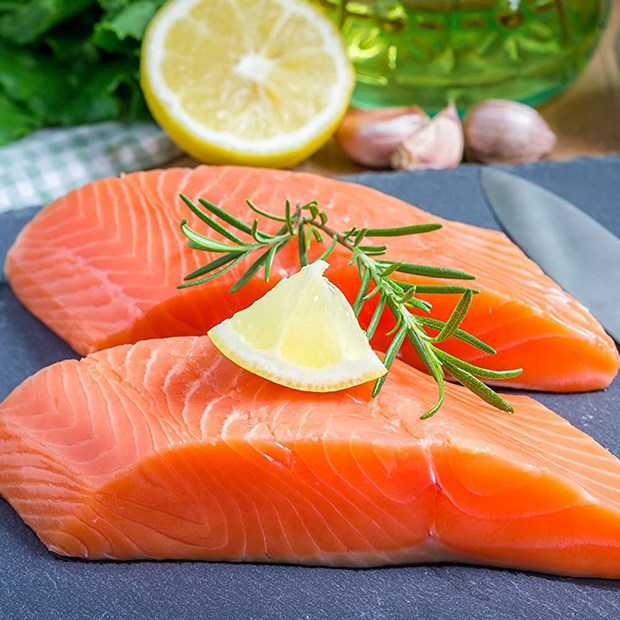Salmon
Salmon is the common name for a variety of fish species belonging to the Salmonidae family. Salmon can be found along the North Atlantic (migratory families Salmo salar) and Pacific (approximately six families of the genus Oncorhynchus) coasts, as well as in North America's Great Lakes. Because of its nutritious benefits, salmon is widely produced in aquaculture in many regions of the world.
Apart from tuna, salmon, particularly wild-caught salmon, is a good source of vitamin B3, fat, and a variety of other minerals. Cooked wild Atlantic salmon fillets (85g) provide 53 percent of the RDA for men and 61 percent of the RDA for women. The same amount of farmed Atlantic salmon, on the other hand, only provided 42% of the RDA for men and 49% of the RDA for women.
Salmon is also high in omega-3 fatty acids, which can help you minimize your risk of heart disease and inflammatory disorders by reducing inflammation. Salmon should be a part of your diet to provide nutrition as well as to prevent cardiovascular disease, autoimmune disorders, and inflammation. When purchasing fresh salmon from the shop, users should be aware of the following procedures for correctly processing fish meat: Filtering fish meat must be done with care and precision, as salmon contains a lot of minute fish meat that, if not removed, will cause injury. When eating, it's easy to induce choking or be dangerous to the users.












